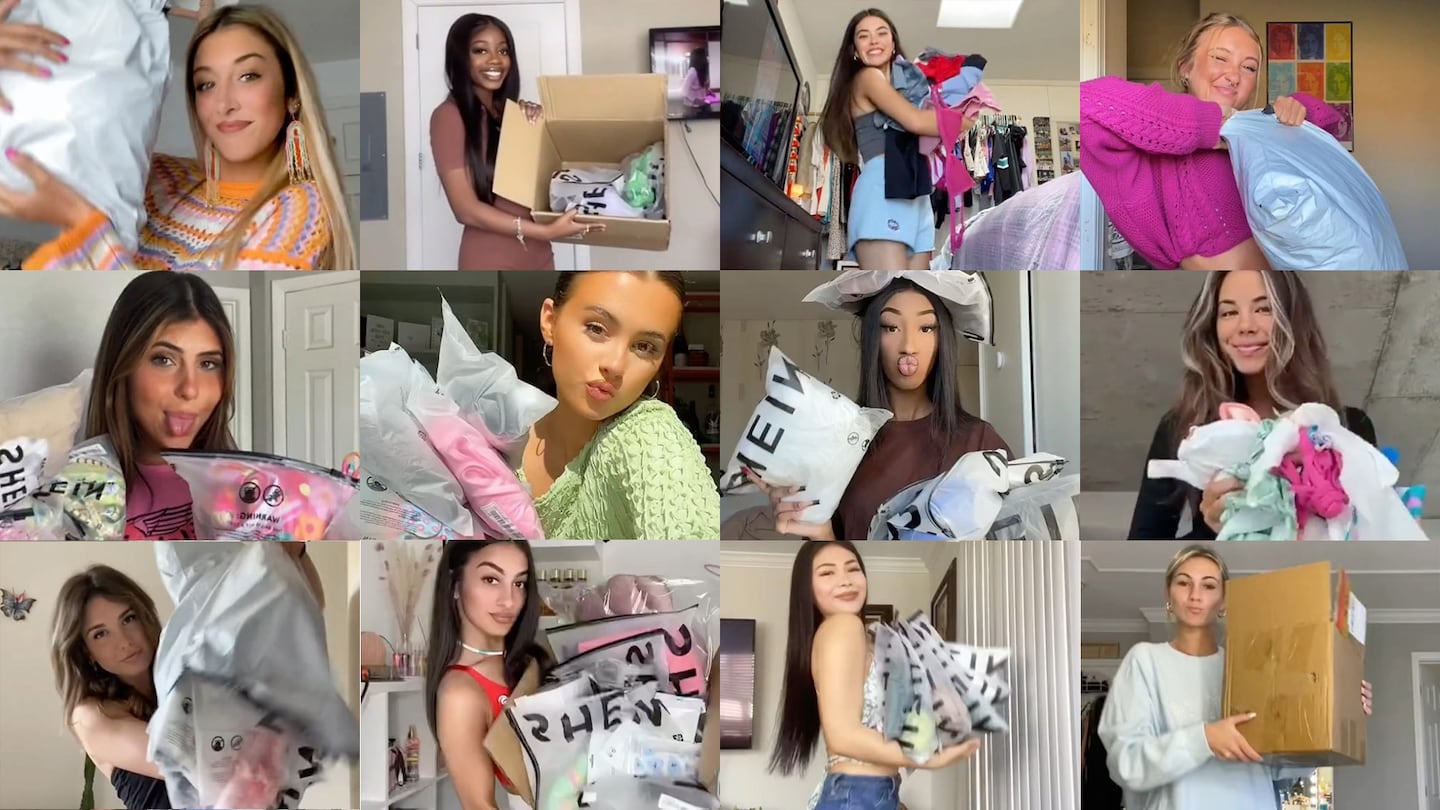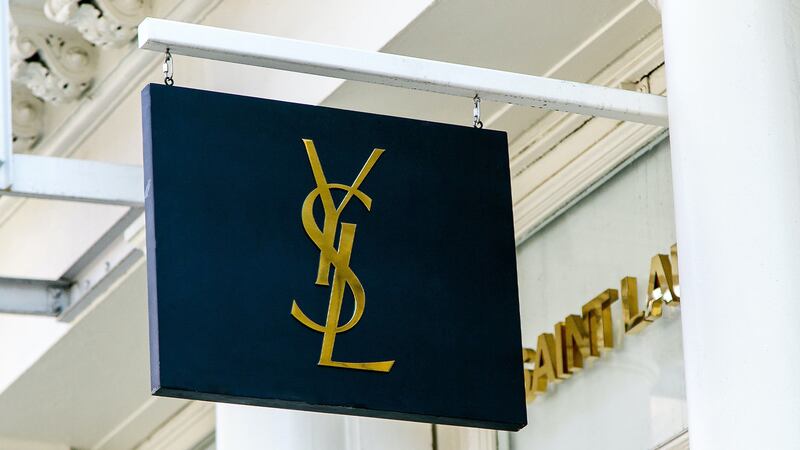
The Business of Fashion
Agenda-setting intelligence, analysis and advice for the global fashion community.

Agenda-setting intelligence, analysis and advice for the global fashion community.

This week, fashion’s sustainability power players gathered in Copenhagen for the industry’s premier event focused on tackling its environmental and social impact.
It’s the first time the Global Fashion Summit organised by industry advocacy group Global Fashion Agenda has been held in person since 2020. And it took place against a backdrop of mounting urgency.
The unequal relationships that underpin poor conditions in fashion’s supply chains have been laid bare by the pandemic, and the window of opportunity to avoid catastrophic climate change is rapidly closing. Meanwhile fashion’s emissions and production volumes are continuing to increase.
That opened the door for more critical and challenging conversations, framed by more voices and perspectives than in previous years. But in many ways it felt a lot like 2019.
ADVERTISEMENT
There was talk of collaboration; there was talk of leadership; there was talk of moving beyond talk to actual action.
And there was one bombshell: Shein, a company that has become the industry’s poster child for wasteful overconsumption, launched a $50 million fund to tackle waste and offset its impact.
The disconnect between the Chinese company’s ultra-fast fashion business model and its new commitment felt jarring. But it’s a page straight out of fashion’s sustainability playbook.
Just like other high-profile industry players, Shein’s announcement tried to refocus the conversation on efforts to mitigate its impact without addressing its root cause: the culture of excessive consumption that fuels fashion’s growth.
In countless conversations on the conference’s sidelines I was told that the move was cynical; that it was greenwashing; that the $50 million commitment over five years pales compared to the reported $16 billion Shein generated in revenue in 2021.
That’s true. It’s also much like what many other major players do to try and address fashion’s negative impact on people and planet while continuing to churn out ever-increasing volumes of product to fuel ever-growing consumption, the real elephant in the room.
Effectively, Shein gatecrashed fashion’s sustainability narrative. In doing so, it held a mirror up to the industry’s efforts thus far, highlighting the gulf between its actions and the needs of impacted communities and the planet itself. The reflection is complicated, but it’s not particularly flattering.
That’s not to downplay the scale of Shein’s impact. The company turns out thousands of new styles every day, selling them faster and cheaper than its biggest rivals. Part of its commercial edge is also a ruthlessly efficient and data-led approach to manufacturing that head of ESG Adam Whinston argues results in less waste on the production side. But the number of new items Shein adds daily is still orders of magnitude greater than competitors.
ADVERTISEMENT
And yet the company’s success is undoubtedly a reflection of a damaging culture of overproduction and overconsumption that the entire industry is complicit in perpetuating.
The first tranche of money will go to The Or Foundation, a charity working in Kantamanto market in Accra, Ghana, one of the world’s largest secondhand markets and the destination for millions of our discarded clothes.
Director Liz Ricketts outlined in visceral detail the harmful — sometimes deadly — impact of fashion’s throwaway culture in the summit’s opening session before announcing the partnership with Shein, drawing gasps from the audience.
Around 15 million unwanted garments are shipped to Kantamanto every week where they are sold by the bail at around $2 a piece, a sum that requires many vendors to take out high-interest loans. While many of the garments are cleaned, repaired, upcycled and recycled in a practical demonstration of circular principles on a scale that outstrips the industry’s current efforts, roughly 40 percent of everything that comes through is just waste, creating a dumping ground of old T-shirts, jeans and leggings, Ricketts said. Women known as Kayayei carry the heavy bales through the market on their heads, backbreaking and sometimes deadly work, she said.
The Or Foundation will receive $15 million over the next three years from Shein’s fund and will work with the company to identify additional grant recipients. The money will support an apprenticeship programme to move women out of dangerous Kayayei work, help community businesses to upcycle waste, improve community conditions in the market and pilot fibre-to-fibre recycling programmes with Ghanaian manufacturers. It will have a real impact.
“It’s not enough. It’s a baby step towards accountability for the industry, but it’s still incredibly meaningful to me,” Ricketts said.
For more BoF sustainability coverage, sign up now for our new Weekly Sustainability Briefing by Sarah Kent.
THE NEWS IN BRIEF
ADVERTISEMENT
FASHION, BUSINESS AND THE ECONOMY

Kering aims to double Saint Laurent sales to €5 billion ($5.36 billion), grow Gucci sales to €15 billion. The French luxury group will look to expand Saint Laurent’s geographic footprint, focus on leather goods and push deeper into the US. It will also raise prices at Gucci, continue increasing the number of higher-end products and accelerate business in China.
StockX denies Nike’s accusations that it sells counterfeit shoes. The sneaker marketplace fired back against Nike’s claims it has purchased counterfeit shoes despite promising everything on the platform is authentic. StockX said it has one of the strongest authentication processes in the industry.
Resale and rental companies band together to lobby for circular fashion policies. The RealReal, Rent the Runway, ThredUp and Fashionphile are among the 11 founding members of the newly-formed American Circular Textiles (ACT) policy group.
Franchise Group enters exclusive talks over Kohl’s sale; Apollo Group in talks to provide financing. The companies have entered into a three-week-long exclusive discussion after a bid valuing the department store at nearly $8 billion. Apollo is in talks to provide up to $2 billion in debt financing for the acquisition, people familiar with the matter told Reuters.
Recycled cotton company Recover valued at $1 billion. The Spanish materials supplier, whose clients include companies like Zara-owner Inditex and Revolve, raised $100 million in a Goldman Sachs-led funding round as it targets growth amid mounting demand for recycled fibres.
H&M and Lululemon back $250 million fund to tackle fashion’s climate impact. The brands are among the lead donors to a new fund, which is designed to de-risk and scale high-impact projects so they can attract up to $2 billion in more conventional financing.
Ted Baker preferred bidder walks away, shares tumble. The company, which was put up for sale in April and said in late May it had picked a preferred bidder, will now weigh other proposals. The news sent shares tumbling nearly 19 percent.
EU set to introduce quota for women on company boards to boost equality. The draft law would oblige listed companies in all 27 EU member countries to have women take up at least 40 percent of non-executive board seats, or that women occupy 33 percent of executive and non-executive roles combined.
Zara owner Inditex’s quarterly profit jumps 80 percent on post-Covid wardrobe renewal. Net profit for the quarter rose to €760 million ($812.06 million), in line with analysts’ expectations as the company surpassed pre-pandemic levels and its gross margin hit a 10-year high, the company said.
Rent the Runway revenue, active users rise. The luxury rental company reported revenue of $67.1 million for the first quarter of 2022, up from $33.5 million in 2021. Active users rose year-over-year from 74,018 to 134,998, slightly above pre-pandemic levels.
Stitch Fix to cut workforce by 15 percent of salaried roles. The online personalised styling service firm said on Thursday it is reducing its workforce in an effort to return to profitability. The layoff at Stitch Fix accounts for nearly 4 percent of the roles.
THE BUSINESS OF BEAUTY

Goldman-backed beauty start-up becomes India’s newest unicorn. Online cosmetics retailer Purplle raised capital at a $1.1 billion valuation, becoming the second billion-dollar company to be created in India this week despite souring investor sentiment on start-ups.
PEOPLE

The RealReal founder Julie Wainwright steps down as chief executive. Wainwright will also exit her role as chairperson and a member of the board of directors, effective Jun. 7. Chief operating officer and president Rati Sahi Levesque and chief financial officer Robert Julain will serve as co-interim CEOs.
Valentino appoints Alessandro Beretta chief executive Europe. Beretta, a Procter & Gamble and Nike veteran will lead the Italian luxury label’s European retail and wholesale growth. Beretta will report to Laurent Bergamo, chief commercial officer Americas, Europe, Middle East and Brazil.
Natacha Ramsay-Levi and Bianca Saunders join a new leather design collective. Netherlands-based manufacturer Ecco Leather also tapped designers Kostas Murkudis and Isaac Reina to found AT.Kollektive, a new design project that aims to highlight the creative potential of leather.
MEDIA AND TECHNOLOGY

Apple launches buy-now, pay-later service as sector experiences turbulence. The new Apple Pay function will roll out as part of Apple’s upcoming iOS 16 update.
Felix Capital is backing web3 natives with new funds. The firm whose investments include Farfetch, Peloton and Highsnobiety announced Wednesday it raised $600 million in new funds, doubling its capital under management to over $1.2 billion. The fund will focus on backing brands native to the ecosystem and companies that make it easier to access blockchain-based platforms and products.
ByteDance said to weigh sale of stake in sneaker reseller Poizon. The TikTok owner has engaged in talks about a sale of a low single-digit percentage-point stake, and would prefer to sell to an existing investor, people familiar with the matter told Bloomberg.
Amazon Fashion partners with CFDA Awards, launches luxury platform in Europe. The e-commerce giant’s latest forays into fashion will see it be an official partner of the annual CFDA event, which will be held in New York on Nov. 7 and launch its luxury fashion vertical in the UK, Germany, France, Italy and Spain.
Compiled by Joan Kennedy
The industry needs to ditch its reliance on fossil-fuel-based materials like polyester in order to meet climate targets, according to a new report from Textile Exchange.
Cotton linked to environmental and human rights abuses in Brazil is leaking into the supply chains of major fashion brands, a new investigation has found, prompting Zara-owner Inditex to send a scathing rebuke to the industry’s biggest sustainable cotton certifier.
Over the last few years, the run-up to Earth Day has become a marketing frenzy. But a crackdown on greenwashing may be changing the way brands approach their communications strategies.
This week, Sephora announced plans to double down on ‘green’ and ‘clean’ product labels, leaning into an increasingly risky marketing tactic even as a greenwashing crackdown has prompted other brands to pull back.